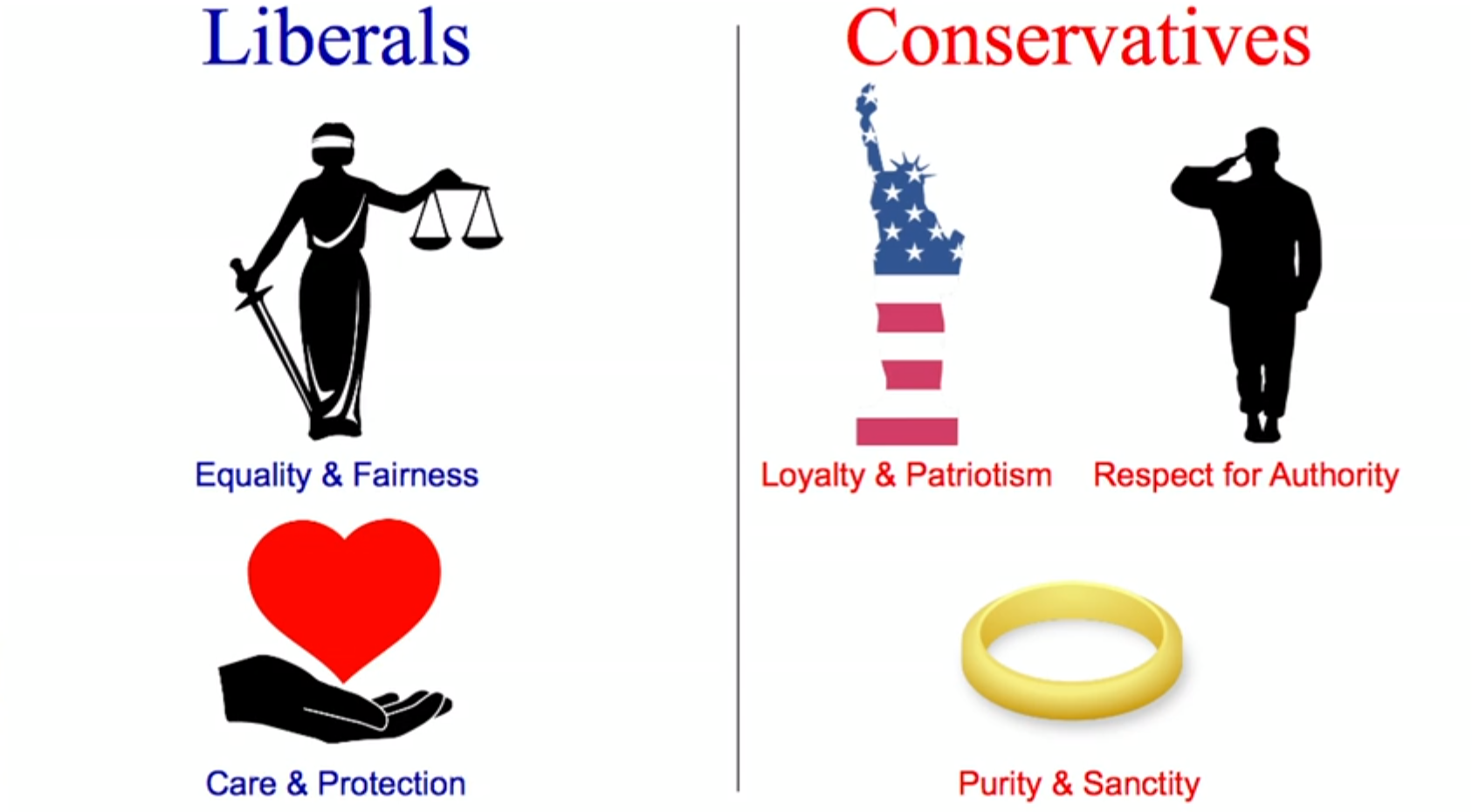Talking blue (and red) – practical advice in Robb Willer’s TED Talk
“Blue language” usually means swearing. Why? Not even Slate knows, though this article “Sacré bleu! Why is blue the most profane color?” offers some historical tidbits. But these days “talking blue” might describe a liberal’s inability to communicate with a conservative. You can articulate the liberal worldview until you’re blue in the face, but if the person on the other side of the conversation holds a conservative worldview, you will never understand each other.
Talking blue to your mirror
Or as social psychologist Robb Willer says,
“…when we go to persuade somebody on a political issue, we talk like we’re speaking into a mirror. We don’t persuade so much as we rehearse our own reasons for why we believe some sort of political position.”
That’s from his TED Talk “How to have better political conversations.” Have a listen and learn how to use “moral reframing” to step away from the mirror and begin the process of connecting with people more challenging than your reflection.
Like George Lakoff, Willer sees partisan messaging as rooted in different core values:
“…liberals tend to endorse values like equality and fairness and care and protection from harm more than conservatives do. And conservatives tend to endorse values like loyalty, patriotism, respect for authority and moral purity more than liberals do.”
You may recall the line in the movie It’s a Wonderful Life that every time a bell rings an angel gets its wings. Well, every time we frame an issue in terms of “fairness and equality”—talking blue—a liberal angel loses its wings.

A screenshot from Robb Willer’s TED Talk
I get it: To me issues like LGBT rights are unquestionably about fairness and equality. And I don’t have to abandon that belief—but if I want a Conservative to hear me, I’d do better to talk about how it’s also an issue of patriotism. “We don’t treat people differently in this country; we don’t interfere in people’s bedrooms; that’s not what Americans do.”
I don’t know. I haven’t got all the answers. But Willer’s argument made me exclaim “D’oh!” and hit my forehead. We need to replace shouts with conversations; we need to replace contempt with empathy; we need to replace disdain with respect. And yes, both sides need to do this. But the more we embrace empathy and respect, the more the other side will as well.
So how do you do that?
Notice the way Willer combines liberal and conservative language at the end of his TED Talk:
“So this is my call to you: let’s put this country back together. Let’s do it despite the politicians and the media and Facebook and Twitter and Congressional redistricting and all of it, all the things that divide us. Let’s do it because it’s right. And let’s do it because this hate and contempt that flows through all of us every day makes us ugly and it corrupts us, and it threatens the very fabric of our society. We owe it to one another and our country to reach out and try to connect. We can’t afford to hate them any longer, and we can’t afford to let them hate us either. Empathy and respect. Empathy and respect. If you think about it, it’s the very least that we owe our fellow citizens.”